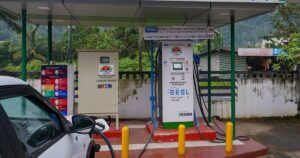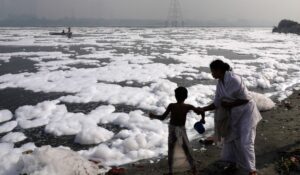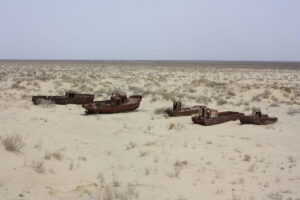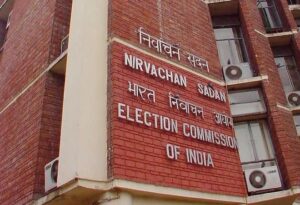Climate Change And The Refugees It Creates
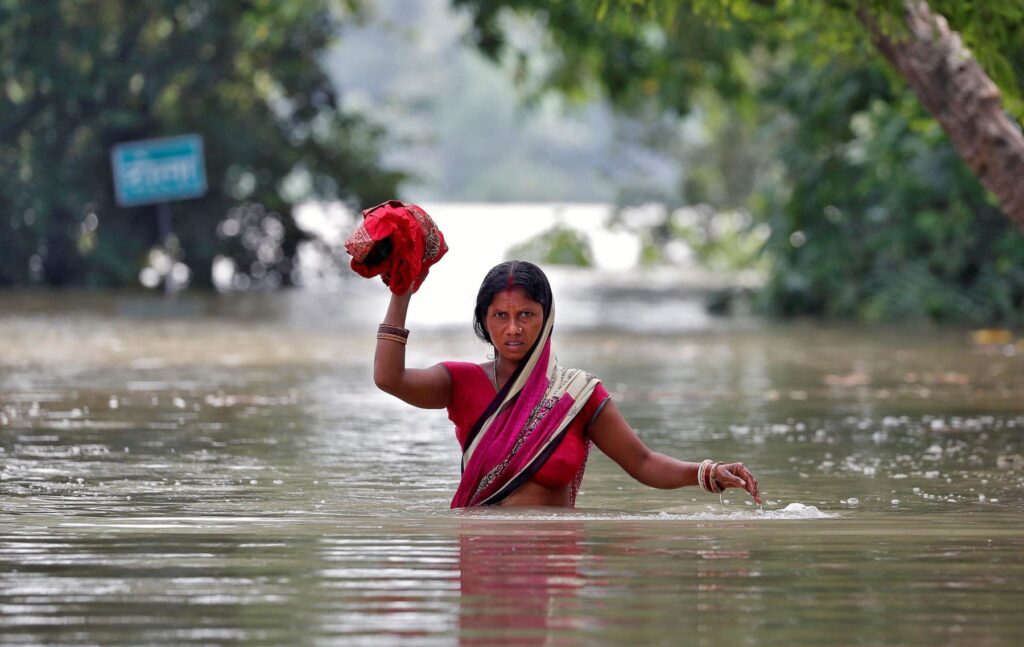
Climate change presents challenges of visibility. Although everyone can see and feel the weather, it is often difficult to observe its larger patterns and longer trends without the aid of technical charts (Image: Cathal McNaughton/Alamy)
As our planet warms, we’re experiencing more frequent and severe weather events, rising sea levels, prolonged droughts and altered ecosystems. These environmental shifts directly affect people’s livelihoods by destroying crops and depleting water sources. They make once-inhabitable areas uninhabitable.
In response to these challenges, many individuals and communities have no choice but to abandon their homes and seek safety elsewhere. The vast majority will remain within their country’s borders – it’s predicted that by 2050 up to 86 million Africans will migrate within their own countries due to weather shocks. But some will cross borders, triggering the need for international protection.
The challenge, however, is that people crossing borders due to weather don’t qualify as refugees under key laws and conventions. This displacement could be due to sudden-onset events, such as volcanic eruptions or flooding, which may pose an immediate threat to life. Or it could be due to slow-onset events, such as desertification or rising sea levels, which may eventually make life untenable.
It’s hard to say exactly how many people this affects because it’s a complex topic. However, we do know that cross-border migration affects tens of thousands of people every year. For instance, drought conditions in 2022, exacerbated by political insecurity and instability, forced at least 180,000 refugees from Somalia and South Sudan into parts of Kenya and Ethiopia.
It’s predicted that the number of people displaced due to weather shifts or disasters will reach as many as 1.2 million people by 2050. This figure will depend on how changes in the climate unfold.
Without refugee status, those forced to move across borders due to weather events may not receive valuable support. Depending on the individual country, support can include the right to live and work, access to health or education services and the right to move freely.
I study the legal protection of asylum seekers, refugees, migrants and internally displaced people in Africa. I recommend that international laws and conventions be amended to explicitly include people forced by weather shocks to move across borders. They need full refugee protection.
Lack Of Protection
A variety of laws ensure refugees’ basic human rights are protected. The core of “refugee law” is constituted by the 1951 Geneva Refugee Convention – a United Nations multilateral treaty that defines who a refugee is – and its 1967 New York Protocol. Refugees in Africa are also protected by the 1969 Organisation of African Unity (OAU) Convention.
These laws provide them with a safe haven, access to fair asylum procedures and protection from discrimination. The domestic laws of many African countries incorporate these international principles. This offers legal safeguards and support to refugees, helping them seek safety and rebuild their lives.
As I mention in a recent study, the challenge with the Refugee Convention is that it rules out people who are “victims of famine or natural disaster” unless they also have a “well‑founded fear of persecution”. For instance, people fleeing Ethiopia between 1983 and 1985 due to drought would be considered refugees because they also feared persecution by the Mengistu Haile Mariam-led military dictatorship (Derg) which was deliberately restricting food supplies in parts of the country.
The United Nations agency mandated to aid and protect refugees, the United Nations High Commissioner for Refugees (UNHCR), follows the definition provided by the Refugee Convention. As does the Global Compact on Refugees, a UN-driven blueprint for governments, international organisations and other stakeholders.
This means that people forcibly displaced only by environmental disasters are not entitled to refugee status, although deserving of temporary protection.
Within Africa, there’s a debate about whether the 1969 Organisation for the African Unity (OAU) Refugee Convention originally included people displaced by natural disasters in its definition of “refugees”. Some practitioners believe it does, though this stance appears limited to human-made disasters.
When it comes to domestic laws, as of now, there’s no African country that recognises people fleeing natural disasters as a “refugee”.
There is, however, some movement. People fleeing environmental disasters are increasingly being recognised by international organisations.
For instance, UNHCR recognises them as a vulnerable category of persons to be protected. It has raised awareness of climate change as a driver of displacement and the need to address protection for people displaced in the context of disasters. UNHCR is also working on addressing legal gaps related to cross-border disaster-displacement.
But there’s still more to be done.
What Needs To Change
People displaced by adverse weather developments should be given more than temporary protection. This will require changes to international regulations and national laws.
For instance, a protocol regarding climate-induced displacement should be added to the 1969 OAU convention so that displaced people who cross international borders are legally covered.
(This article is republished from The Conversation under a Creative Commons license. Read the original article here)

